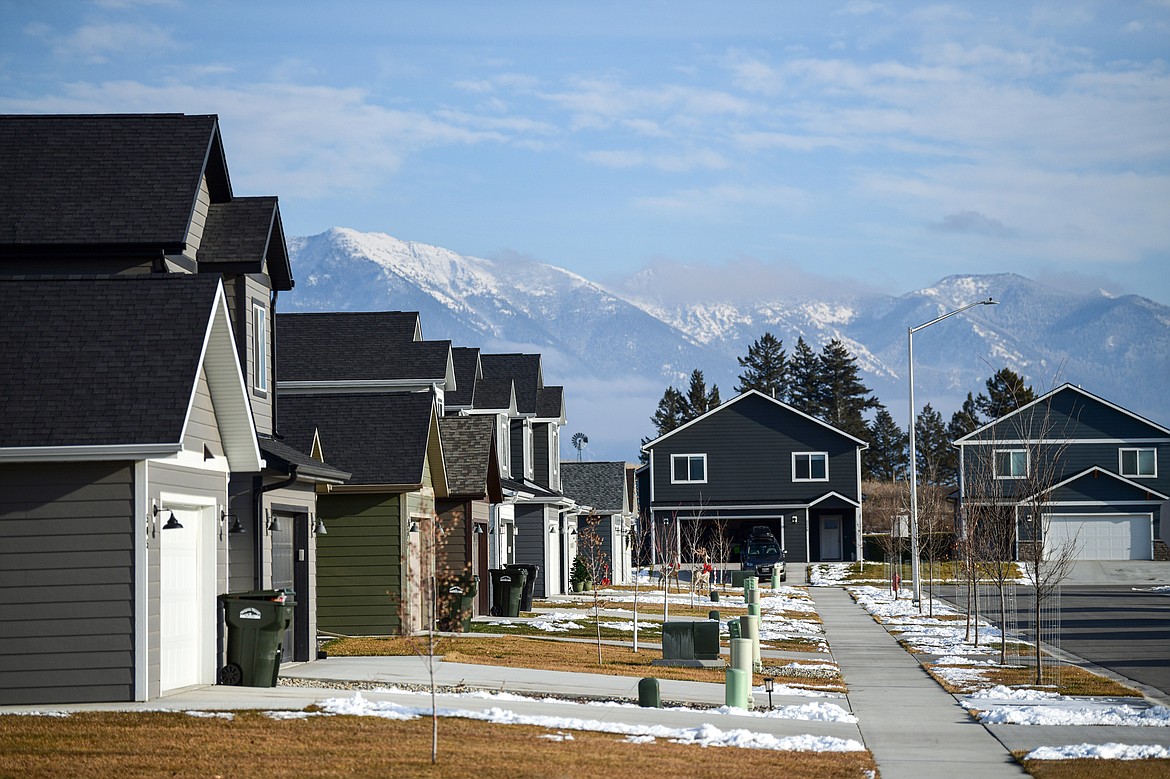Senate votes down Gianforte property tax relief bill, again
Gov. Greg Gianforte’s signature property tax relief measure reached a possible end Thursday evening to its stop-and-go journey through the state Legislature as it narrowly failed a vote in the Montana Senate. The 25-25 vote cast further uncertainty into a turbulent debate over what’s seen as a must-fix problem by lawmakers across Montana’s ideological spectrum.
While several other pending bills could give lawmakers options for fixing surging residential property taxes, the vote on the governor-backed proposal indicates that lawmakers, who have at most 13 business days remaining in this year’s session, still haven’t landed on a solution with the critical mass of political support necessary to pass.
Specifically, Senate-side lawmakers appear to be deeply skeptical of relief measures that, like the governor’s proposal, would tweak tax rates to reduce taxes on homeowners by shifting burden to other types of property. Instead, the Senate’s Republican leadership has voiced support for rebate bills that route non-property tax dollars into discounts for homeowner tax bills.
Conversely, Republican Gov. Greg Gianforte, who also wants to cut state income taxes this year, has taken a firm stance against directing income tax dollars toward permanent property tax relief programs. Because income tax dollars are the largest source of state revenues, that constraint has presented a challenge for lawmakers who want to provide homeowners with an appreciable discount on tax bills that have in most cases risen by at least 20% in recent years.
Developed by House Appropriations Chair Llew Jones, R-Conrad, the Gianforte-backed relief bill, House Bill 231, would scale down taxes on primary residences and long-term rental properties, raising them on second homes and Airbnb-style short-term rentals in an effort to limit how much tax burden is shifted onto business properties. Like most of the other major tax proposals considered by the Legislature this year, it aims to provide homeowner tax relief without cutting the local tax revenues that fund services including schools, law enforcement and parks departments.
The Gianforte-Jones bill passed the House on a 68-30 vote in February, but had stalled in the Senate Taxation Committee. It was ultimately advanced to the Senate floor with substantial amendments following a vote Wednesday.
As it turned out, the bill received an even less favorable reception on the Senate floor Thursday, with both Democratic and Republican senators voicing opposition and only one Democrat, Whitefish Sen. Dave Fern, speaking in favor of a bill that has been a central plank of the Republican governor’s policy platform.
“I would hope you pass this bill, hope we can send a message to Montana that we’re serious about property tax,” Fern said.
Among the opponents was Senate Taxation Chair Greg Hertz, R-Polson, who, among other concerns, said he was worried about saddling Montanans who own second homes or Airbnb properties with significant tax increases.
“All your neighbors around you have more than one home,” Hertz said.
Other opponents included Sen. Jeremy Trebas, R-Great Falls, who called the bill “unabashed socialism,” and Sen. Becky Beard, R-Elliston, who called measures that shift tax burden from one class of property to another “smoke and mirrors.”
Democratic opponents included Sen. Mary Ann Dunwell, D-Helena, who expressed concern that homeowners who fail to successfully file paperwork documenting their home as a primary residence would end up paying higher taxes intended for second homes, and Sen. Emma Kerr-Carpenter, R-Billings, who worried that a quirk of the Billings city charter would nullify a mechanism that proponents are relying on to keep rate-based tax relief measures from cutting local government revenues.
Hours before the Senate debated the governor’s bill Thursday evening, House lawmakers made a failed bid to resurrect the property tax relief measure that has so far received the most Senate support, Senate Bill 90. That bill, which passed the Senate 42-7 in February but was tabled by the House Taxation Committee earlier this month, would divert lodging tax money to fund annual property tax rebates — offering about $250 per homeowner annually in its current form.
A motion to pull SB 90 out of the committee Thursday afternoon for a floor debate, one of several such motions made in recent days, drew vocal opposition from Republican leadership in the House.
House Majority Leader Steve Fitzpatrick, R-Great Falls, asked for patience from his fellow legislators, saying he and other lawmakers are on the cusp of negotiating a compromise measure.
“I think we’re starting to come close to something that is palatable for the vast majority of people in here,” he said.
Fitzpatrick also argued that business interests are lobbying for SB 90 because, unlike bills that shift tax burdens between property classes, it wouldn’t raise property taxes on industrial properties or high-value real estate.
“I realize there is a tremendous amount of pressure out in the hallways from corporate lobbyists to push this bill, and the reason is very simple — they are doing everything possible to kill all of the other property tax bills,” Fitzpatrick said.
Other lawmakers argued that voting SB 90 forward wouldn’t necessarily conflict with other measures.
The push to advance SB 90, the third such effort in the last week, failed on a 38-59 vote.
Eric Dietrich is deputy editor of the Montana Free Press, a nonprofit newsroom.

